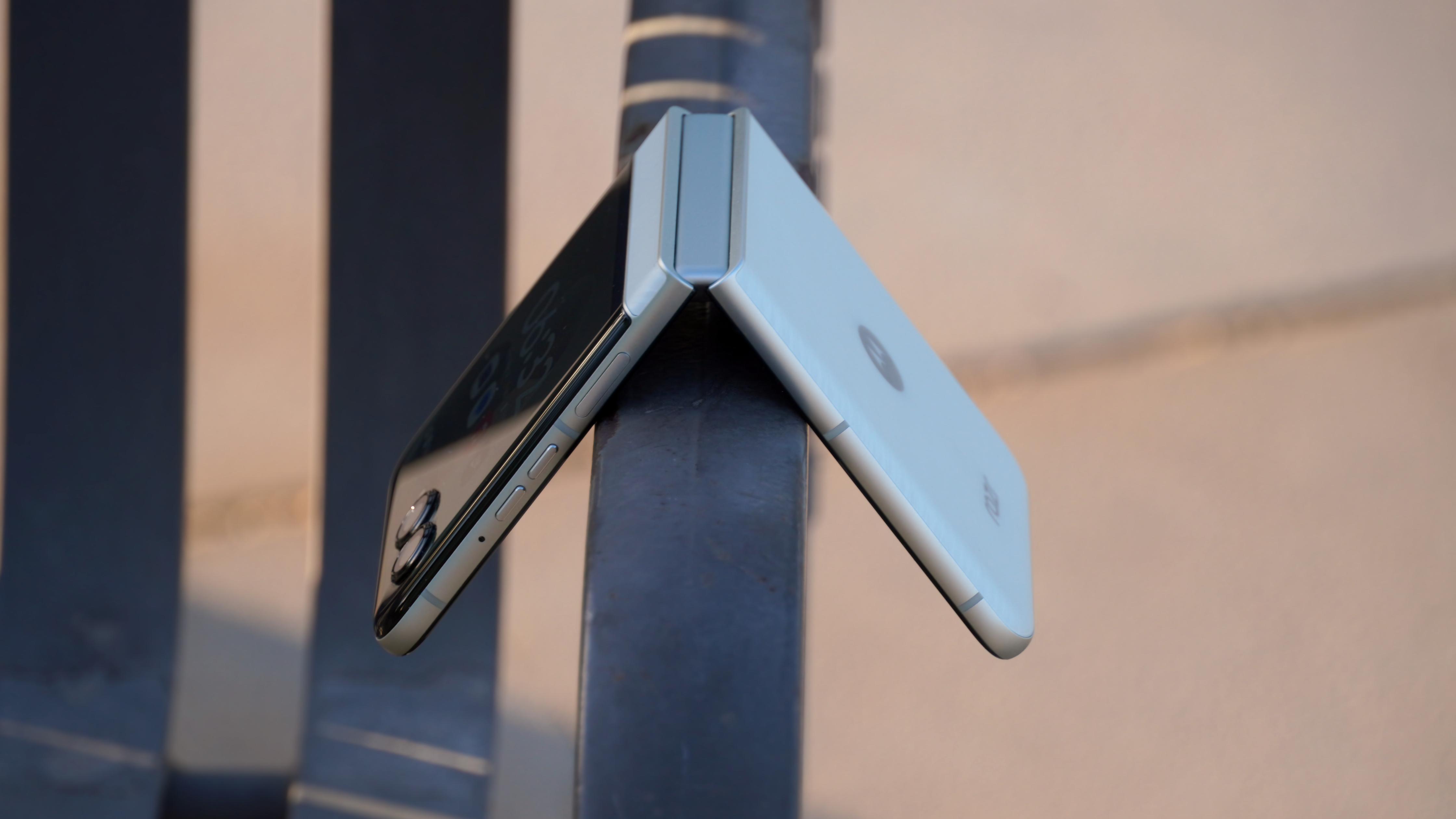Last year's Lenovo Chromebook Duet whet my appetite for the new Duet 5

This week, Lenovo announced several new products as part of its Lenovo Tech World event, including new wireless earbuds and a couple of exciting new tablets. One of these new tablets is the Tab P12 Pro, an Android tablet that is designed to also work as a second screen with Windows computers. The other tablet (and the one I really care about) is the successor to last year's popular Chromebook Duet — The Chromebook Duet 5.
At 13.3 inches, the newer Duet 5 is significantly larger than the last Duet, so why is it called the Duet 5 instead of, I don't know, the Duet 13, or the Duet 2nd Gen? That's a good question, and I'm so glad you asked! We're not sure if Lenovo is calling this version the Duet 5 in homage to its popular Flex 5 Chromebook, which incidentally, is still our pick as the best Chromebook for most people. On the other hand, it could just as easily be because many of Lenovo's devices over 13 inches have a 5 in their name. Whatever the reason, I'm excited for it.
As a splurge or personal indulgence, I purchased a Chromebook Duet for myself during last year's Black Friday sales, and it's been my trusty couch companion ever since. I love it for many reasons, but there are certain areas where it could be improved — areas that the newer Duet 5 seems to address.
The original was great, but it can't Duet all
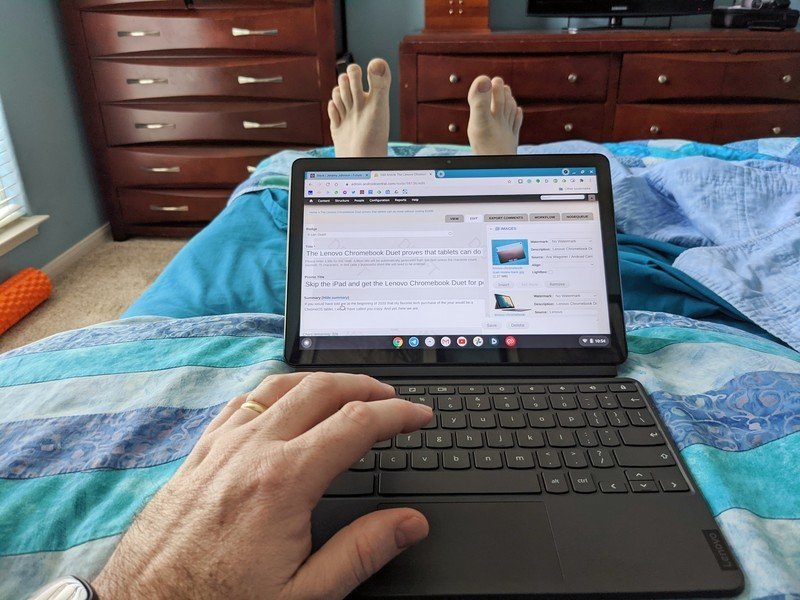
We don't need to rehash what a mess tablets in the Google ecosystem have historically been — we all know that the situation has been pretty rough. Google itself appeared to give up on Chrome OS tablets after the Pixel Slate, and even the best Android tablets from companies like Samsung and Lenovo haven't been able to put a dent in the iPad's dominance.
And yet, there was a bright spot in this category last year with the original Chromebook Duet. I mentioned above how I had to grab one for myself after reading all about the device from my colleague Ara's excellent review, and it turned out to be my favorite mobile device of all of 2020. And for around $250, it has been a hell of a bargain.
If you can afford to splurge a little on a secondary or tertiary device, the original Chromebook Duet is a great option.
I'm fortunate enough to have a full-time, dedicated "real" computer to work from and my pick of the best Android phones to use as my daily driver, so I don't need a personal tablet like the Duet, though I'm sure glad I have it. It's great for doing tablet-y things like watching YouTube videos, reading my Feedly articles (or even Kindle books), and messaging my friends on Telegram or Google Messages.
I also appreciate how it comes with a protective cover and keyboard with a trackpad for those times when I want to bang out an email or dream about my future travels on VRBO or Zillow. But when I want to use it for my daily work, it starts to run up against some limits that it can't quite push through.
Get the latest news from Android Central, your trusted companion in the world of Android
However, it's not a perfect device by any means. Its screen is in that 'tweener stage, where some websites can't decide whether to render a more mobile version or a squished desktop version, and its Mediatek Helio P60T processor struggles when I approach 10 or more tabs. From a port perspective, only having one USB-C port (and no audio jack) isn't ideal, and the dual speakers, while nice, could be louder. Plus, as nice as the keyboard is — and I actually quite like it — it is a bit cramped. For these reasons, I've always seen the original Duet as more of a fun device than a productivity machine.
Taking a just Duet approach to Chrome OS tablets
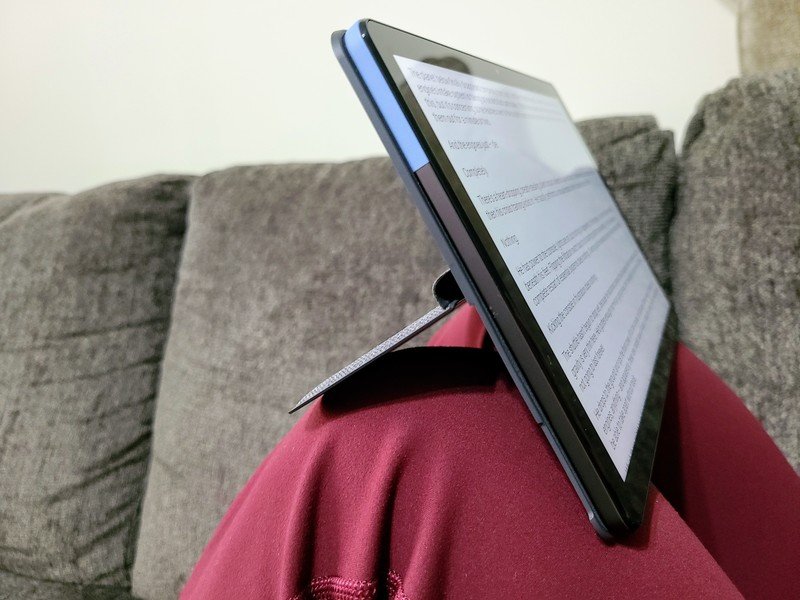
I don't regret purchasing the original Chromebook Duet, but the new Duet 5 definitely has me considering getting my little tablet a bigger sibling. Lenovo appears to have addressed nearly all of the concerns from the first iteration and built what just might be the first Chrome OS tablet to gain significant traction among consumers.
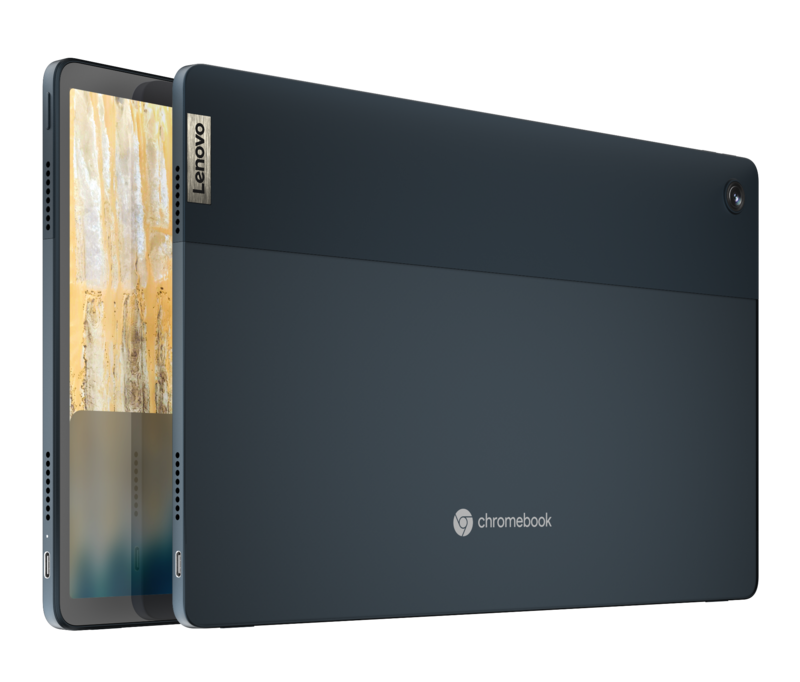
For starters, the Duet 5 has a bigger and more useable display at 13.3 inches (vs. 10.1 on the older Duet). It also comes with better internals, including the Qualcomm Snapdragon 7c Gen 2 Compute Platform and up to 8GB of RAM, which should help with things like keeping more tabs and apps in memory and multitasking — you know, productivity things.
The Duet 5 comes with up to 256GB of internal storage, and Lenovo says it will support SSDs for expandable storage. In addition, it is equipped with two USB-C ports, so you can keep it plugged into power while saving one port for peripherals like USB-C audio, flash drives, or even a monitor, and there are now four speakers for an even better audio experience.
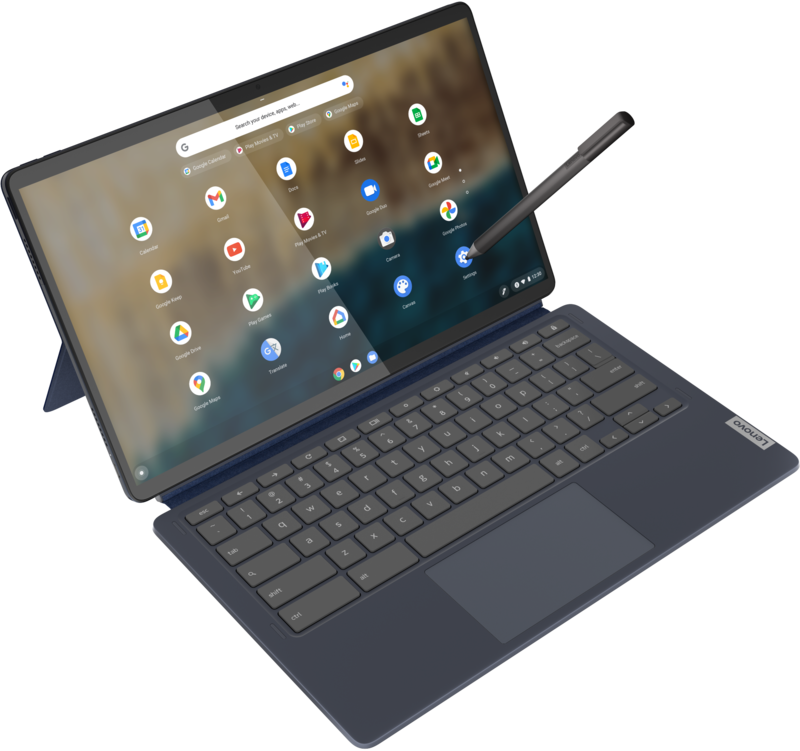
Aside from those internal performance upgrades, the two new features that will make the biggest difference to me are the larger, full-sized keyboard and the much larger battery. As a result, not only will typing on the Duet 5 be more comfortable, but I'll also be able to do so for up to five hours longer than on my current Duet. That's more than half a workday!
Lenovo is once again aiming for a sweet spot in its pricing, offering the Duet 5 from $430, which like the Flex 5, is comfortably under that magic $500 price point that separates the affordable from the premium. With the same balance of value and utility that Google's Pixel 5a offers, I think this could be the can't miss Chromebook of 2021.
I'm curious to know how you feel about the new Lenovo Chromebook Duet 5. Does this device make you interested in a Chrome OS tablet? Let me know what you think in the comments.

Jeramy was the Editor-in-Chief of Android Central. He is proud to help *Keep Austin Weird* and loves hiking in the hill country of central Texas with a breakfast taco in each hand.
